Can a German Shepherd Eat Blueberries?
Date Published: February 12, 2024 | Last Modified: February 16, 2024
Before we delve into the delicious world of blueberries for German Shepherds, let's establish a simple fact - yes, German Shepherds can indeed munch on these tiny, nutrient-packed fruits! In this article, we'll explore the various health benefits of incorporating blueberries into your canine companion's diet, weigh the pros and cons of feeding them this treat, address any safety concerns (spoiler alert: there are very few!), and dispel any worries about blueberries being toxic to your furry friend. So, keep reading to find out if blueberries are not only safe but also beneficial for your beloved German Shepherd.
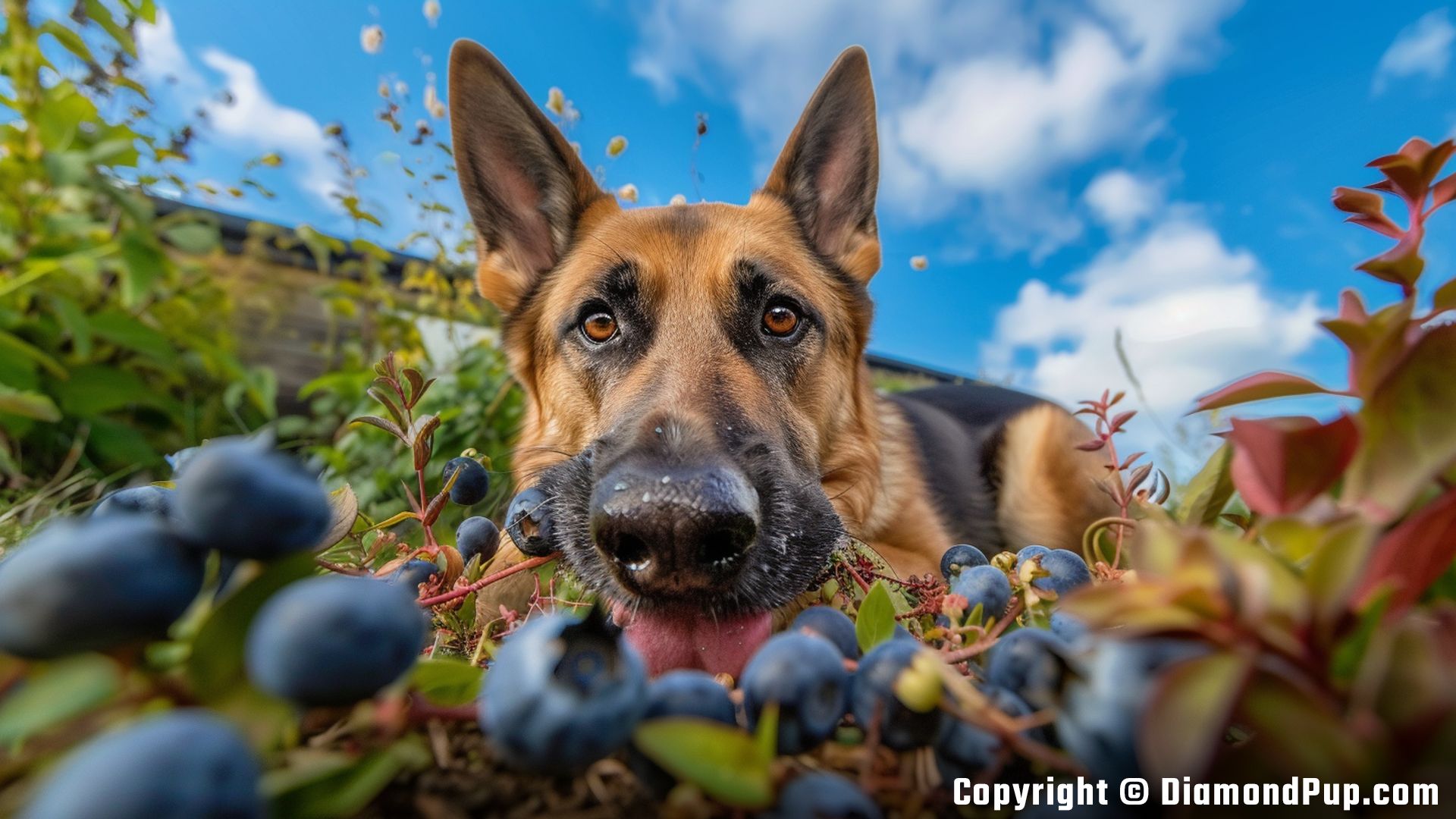
Are Blueberries Good for German Shepherds?
Blueberries are not only safe but also highly beneficial for German Shepherds. These tiny fruits are packed with antioxidants, fiber, and vitamins that can contribute to your dog's overall health. The antioxidants in blueberries can help boost your German Shepherd's immune system, while the fiber content can aid in digestion and promote gut health. Additionally, the vitamins in blueberries, such as vitamin C, are essential for your dog's skin, coat, and overall well-being.
When choosing blueberries for your German Shepherd, opt for fresh ones whenever possible. Frozen blueberries can also be a good option, just make sure they are unsweetened and do not contain any harmful additives. As with any treat, moderation is key to avoid any potential digestive upset due to high fiber content in blueberries.

Understanding the Benefits of Blueberries for German Shepherds
German Shepherds can definitely enjoy the benefits of incorporating blueberries into their diet. People also ask can I feed blueberries to a dachshund - and the answer is yes, for them as well, these small, nutrient-packed fruits are rich in antioxidants, vitamins, and fiber, which can help support your dog's overall health and well-being. Antioxidants are important for combating inflammation and oxidative stress in the body, while vitamins like vitamin C can boost the immune system. Additionally, the fiber content in blueberries can aid in digestion and overall gut health for your German Shepherd.
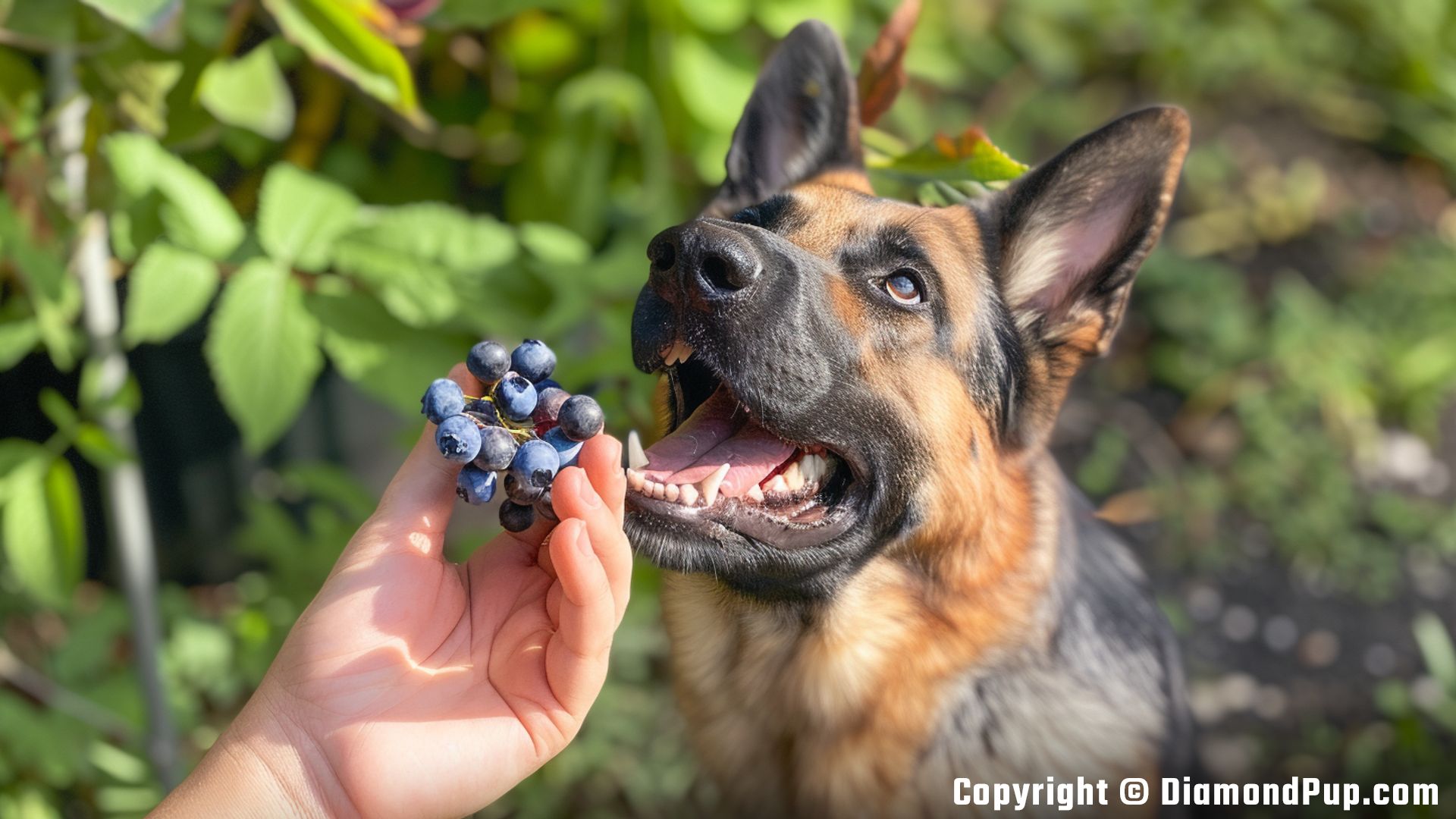
Nutritional Benefits of Blueberries for German Shepherds
Blueberries are a fantastic addition to your German Shepherd's diet due to their impressive nutritional profile. These little fruits are packed with antioxidants, such as vitamin C and flavonoids, which help boost the immune system and promote overall health. Additionally, blueberries are rich in fiber, which aids in digestion and can help regulate blood sugar levels. For your German Shepherd, who is prone to certain gastrointestinal issues, the fiber content in blueberries can be particularly beneficial.
Furthermore, blueberries contain important vitamins and minerals, including vitamin K, manganese, and vitamin A, all of which play a crucial role in supporting your dog's health. These nutrients contribute to maintaining healthy bones, promoting good eyesight, and ensuring proper blood clotting. So, incorporating blueberries into your German Shepherd's diet can provide a delicious and nutritious snack that offers a wide range of health benefits.
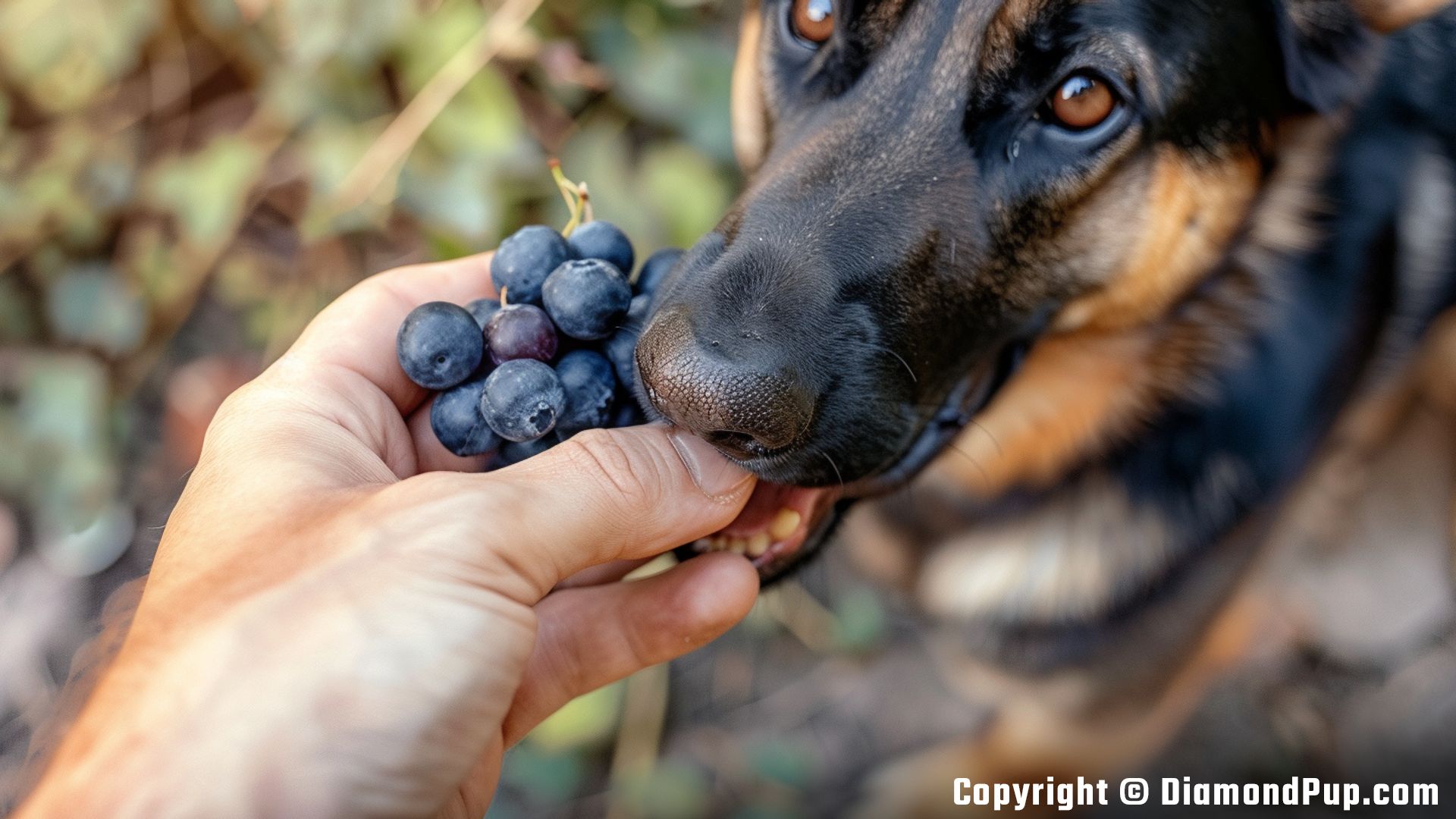
Safely Introducing Blueberries to Your German Shepherds' Diet
When introducing blueberries to your German Shepherd's diet, start slow to ensure their digestive system can handle it. Begin by offering a small amount of mashed or pureed blueberries mixed with their regular food. Monitor your dog for any signs of stomach upset, such as diarrhea or vomiting, and adjust the portion size accordingly. Remember, moderation is key when introducing any new food to your pet's diet.
As with any treat, including blueberries in your German Shepherd's diet should not exceed 10% of their daily caloric intake. Blueberries are a healthy snack rich in antioxidants, fiber, and vitamins, but overfeeding can lead to an imbalance in their overall nutrition. Always consult with your veterinarian or a professional nutritionist for personalized advice on incorporating blueberries into your German Shepherd's diet.
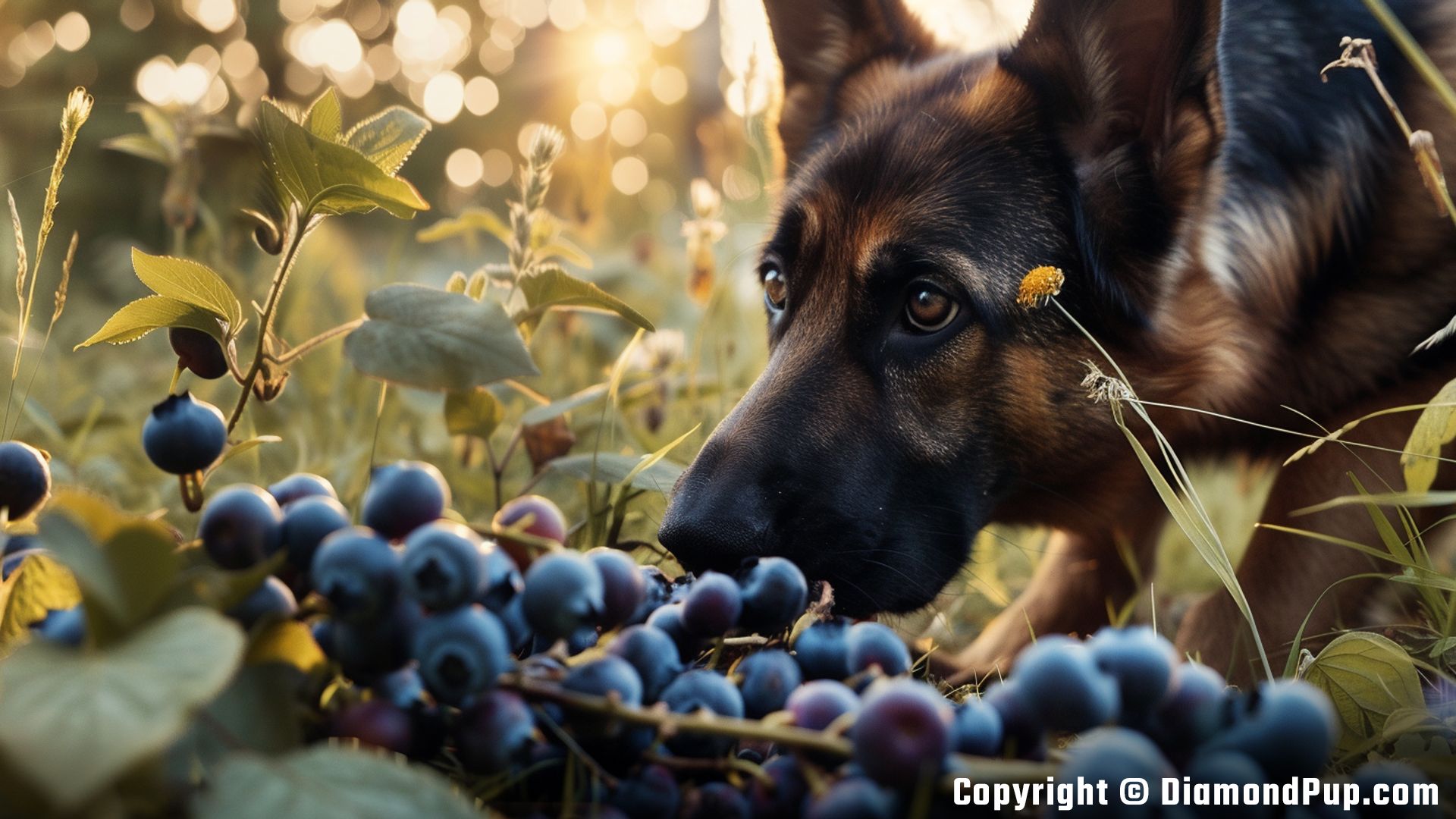
How much blueberries can German Shepherds eat safely?
When it comes to feeding your German Shepherd bananas, moderation is key. While bananas are a healthy snack for your furry friend, it's important not to overdo it. A good rule of thumb is to feed your German Shepherd bananas as an occasional treat, rather than a staple in their diet. This is because bananas are high in sugar and carbohydrates, which can lead to weight gain and digestive issues if consumed excessively.
For a German Shepherd, a few small slices of banana as a treat a couple of times a week should be perfectly safe. Remember to always remove the peel and cut the banana into small, bite-sized pieces to avoid any choking hazards. As always, it's best to consult with your veterinarian before making any significant changes to your dog's diet to ensure it aligns with their specific nutritional needs.
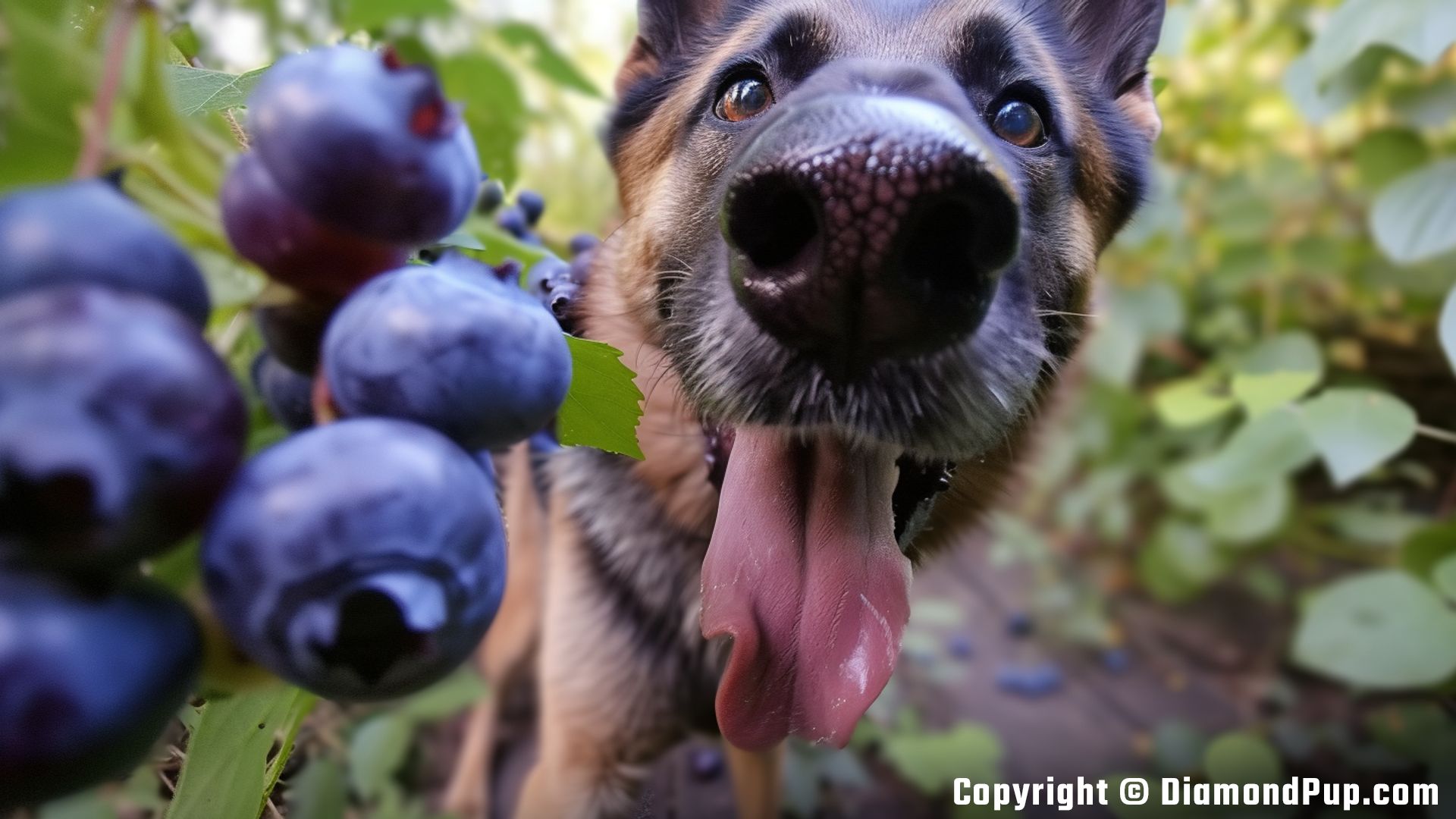
Tips to Remember When Feeding Your German Shepherds Blueberries
When feeding your German Shepherd bananas, it's important to remember moderation is key. Bananas are high in natural sugars, which can lead to weight gain and digestive issues if consumed excessively. Aim to offer small portions of banana as an occasional treat rather than a daily snack. Additionally, always remove the peel before feeding your furry friend, as the peel can be difficult for your dog to digest and may pose a choking hazard.
Furthermore, consider your individual dog's dietary needs and any existing health conditions before incorporating bananas into their diet. If your German Shepherd has diabetes or is prone to digestive sensitivities, it's best to consult with your veterinarian before introducing bananas or any new food into their routine. Remember, every dog is unique, so what works for one may not necessarily work for another.
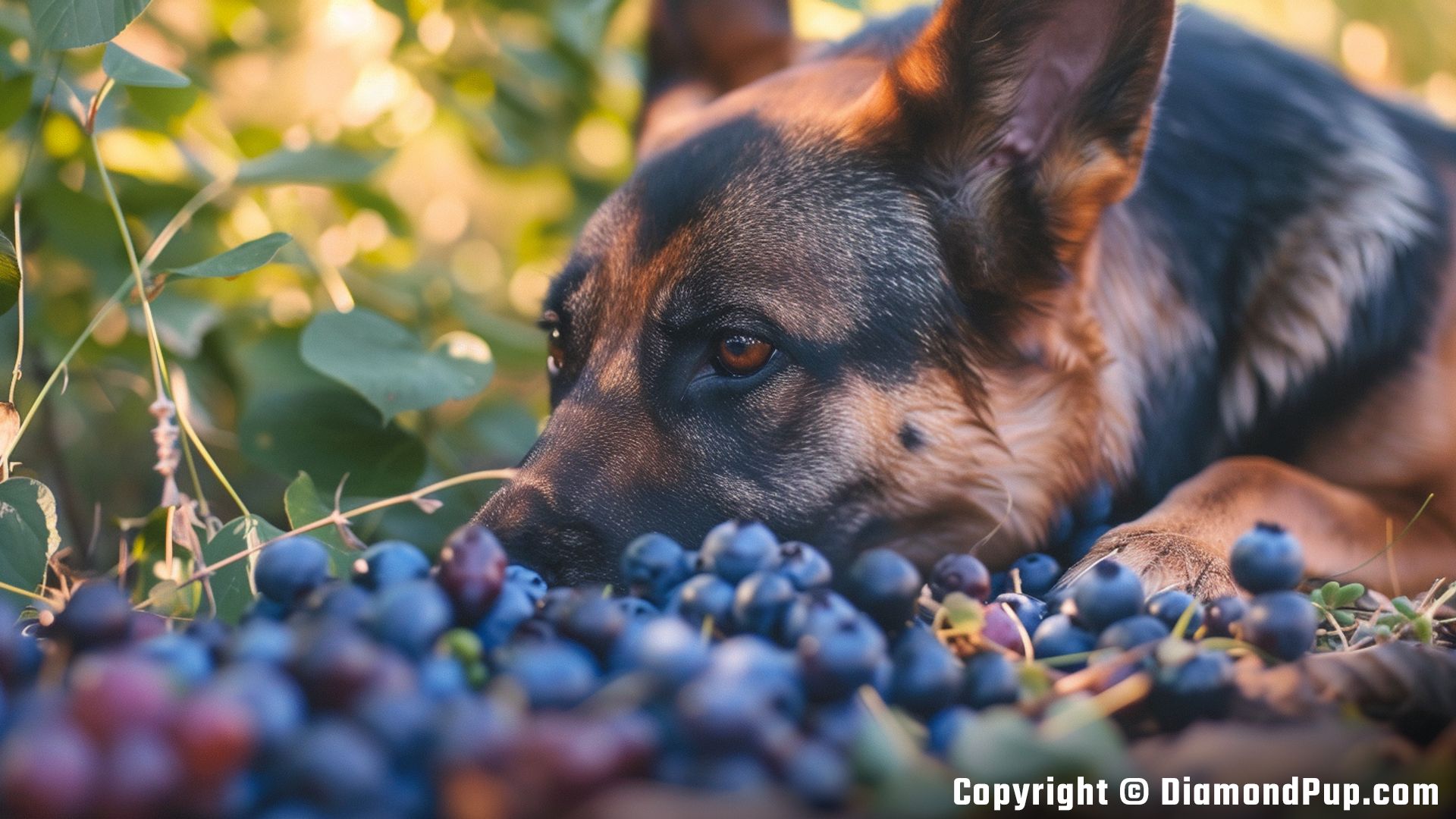
Feeding Your German Shepherds Blueberries
When it comes to feeding your German Shepherd blueberries, you can rest assured that these berries are not only safe but also packed with health benefits for your furry friend. Blueberries are rich in antioxidants, which can help boost your dog's immune system and overall health. Additionally, they are low in calories and fat, making them a great snack option for your German Shepherd. However, moderation is key when feeding your dog blueberries, as too many can lead to digestive upset due to their fiber content.
When incorporating blueberries into your German Shepherd's diet, it's important to wash them thoroughly and remove any stems or leaves to avoid any potential choking hazards. You can feed your German Shepherd blueberries as a tasty treat or even mix them with their regular food for an added nutrient boost. Remember to introduce new foods slowly and monitor your dog for any adverse reactions. As always, it's best to consult with your veterinarian before making any significant changes to your dog's diet.
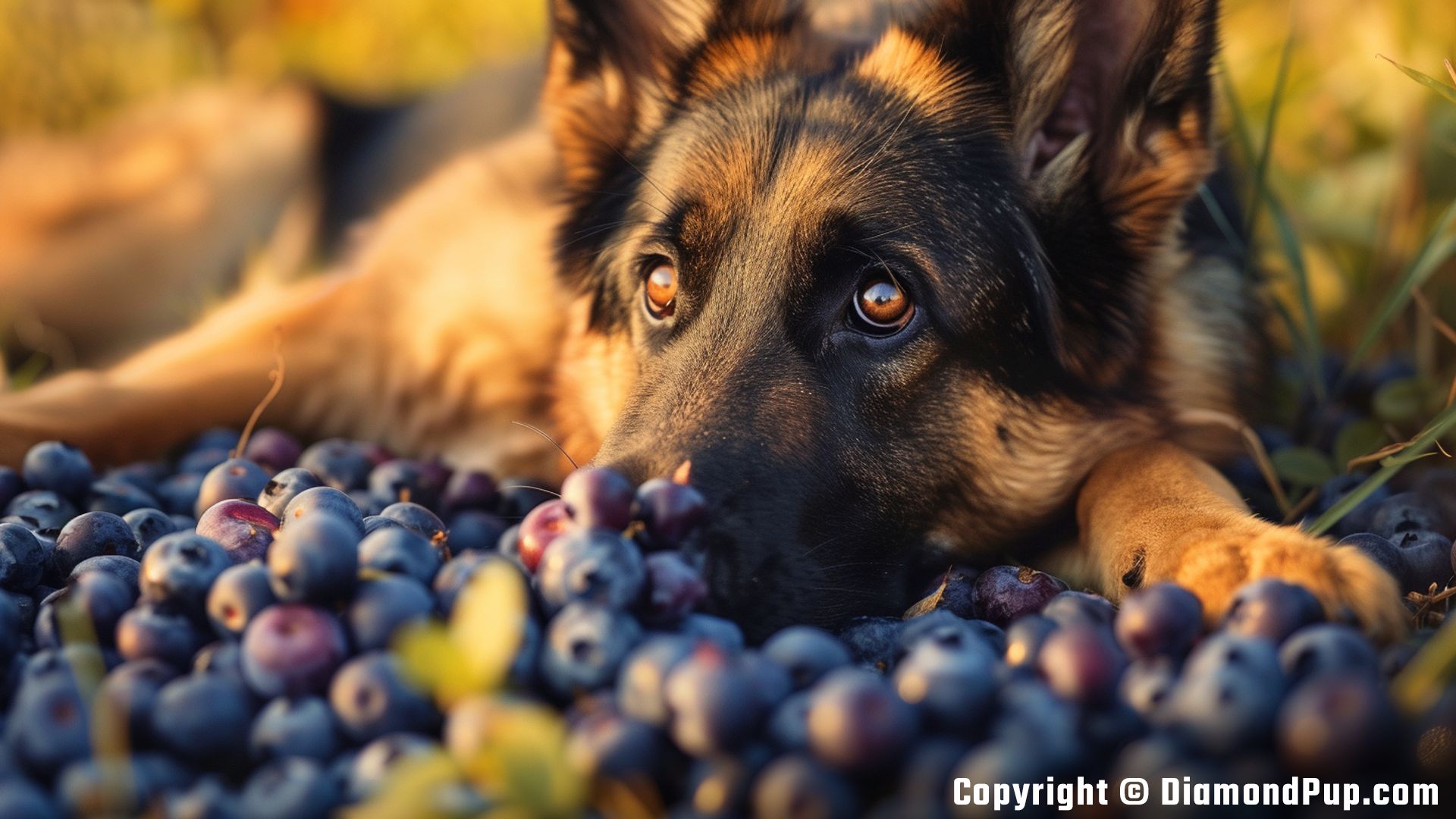
How to properly feed your German Shepherds Blueberries
When it comes to feeding your German Shepherd bananas, moderation is key. Bananas are a great source of vitamins and minerals such as potassium, vitamin C, and vitamin B6, which can benefit your dog's overall health. However, they are also high in sugar and calories, so it's important not to overdo it. As a general guideline, you can offer your German Shepherd a few small pieces of banana as an occasional treat, rather than making it a regular part of their diet. This will help prevent any potential digestive issues or weight gain.
It's also crucial to monitor your German Shepherd for any signs of allergies or sensitivities after introducing bananas into their diet. If you notice any digestive upset, such as vomiting or diarrhea, it's best to discontinue feeding them bananas and consult with your veterinarian. Overall, bananas can be a healthy and tasty addition to your German Shepherd's diet when given in moderation and with close observation for any adverse reactions.
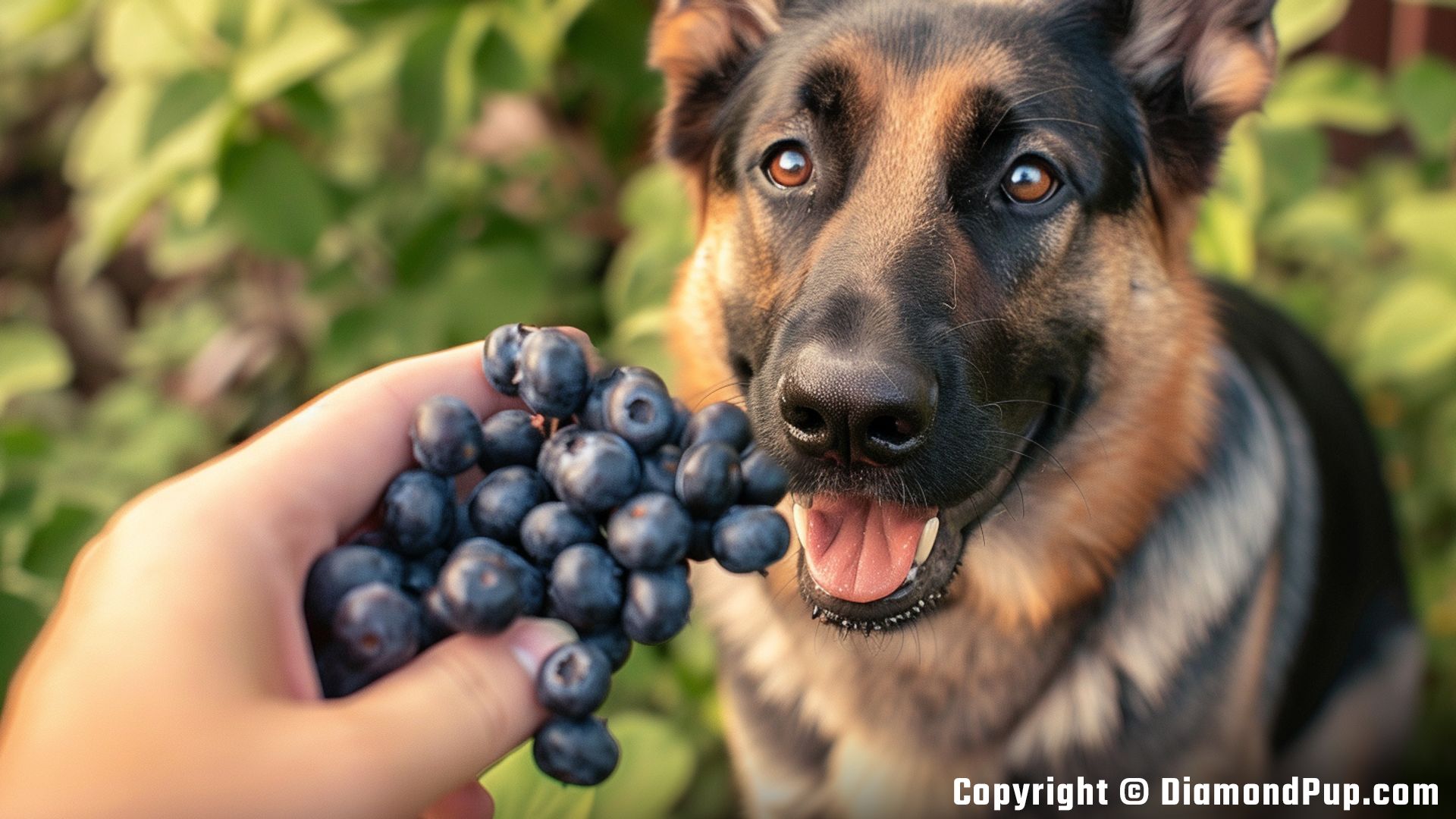
Do German Shepherds Like Blueberries?
German Shepherds, known for their intelligent and curious nature, often enjoy exploring new foods and flavors. When it comes to blueberries, many German Shepherds seem to have a natural affinity towards these tiny, sweet fruits. The burst of juicy sweetness combined with the fun popping sensation when biting into a blueberry can be quite enticing for these active and playful dogs.
Additionally, blueberries are not only tasty but also packed with essential vitamins and antioxidants that can benefit your German Shepherd's overall health. So, if you offer your furry friend a few blueberries as a treat, don't be surprised if they eagerly gobble them up and wag their tail in delight!

Special Consideration for German Shepherds
When it comes to German Shepherds, it's essential to consider their size and activity level when introducing new foods into their diet. These dogs are known for their large, muscular build and high energy levels, which means they require a balanced diet to support their active lifestyle. Bananas can be a great addition to a German Shepherd's diet due to their potassium content, which helps with muscle function and hydration. However, it's important to feed bananas in moderation, as too much can lead to digestive issues like diarrhea.
Additionally, German Shepherds are prone to certain health conditions such as hip dysplasia and digestive sensitivities. When selecting bananas for your German Shepherd, opt for ripe ones that are easy to digest. Avoid feeding them the peel, as it can be difficult for their digestive system to break down. Overall, bananas can be a healthy and tasty snack for your German Shepherd, as long as they are given in appropriate portions and prepared in a way that is easy for your furry friend to digest.
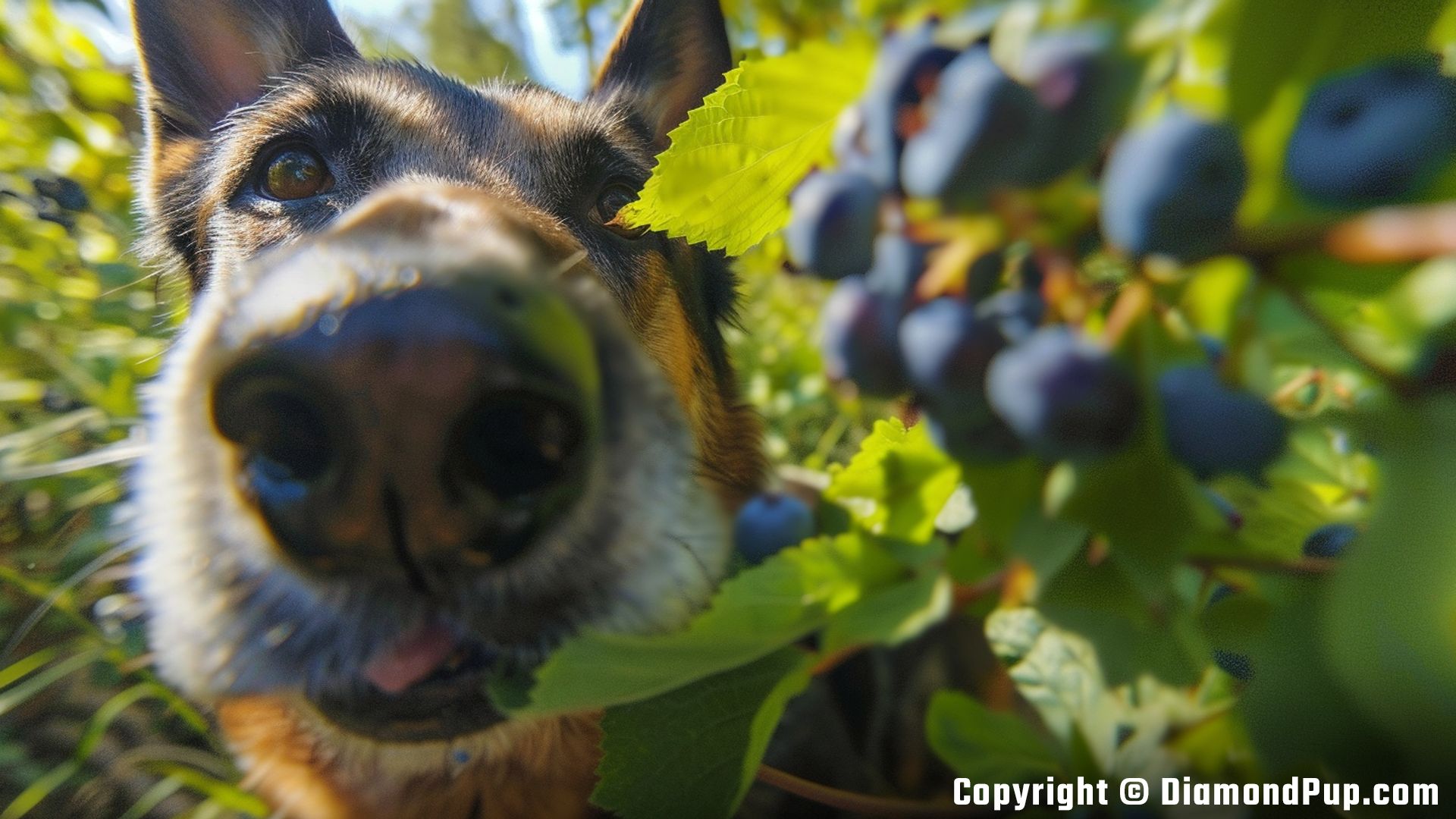
Can Puppies Have Blueberries?
When it comes to feeding blueberries to German Shepherd puppies, it's important to do so in moderation. Puppies have smaller digestive systems and can be more sensitive to new foods. Start by offering a small piece of blueberry and monitor for any signs of digestive upset, such as diarrhea or vomiting. If your puppy tolerates the fruit well, you can gradually increase the amount given.
Blueberries can be a healthy addition to a German Shepherd puppy's diet due to their antioxidant properties and essential nutrients. However, remember that blueberries should only be given as an occasional treat and not as a substitute for a balanced puppy diet. Always consult with your veterinarian before making any significant changes to your puppy's diet.
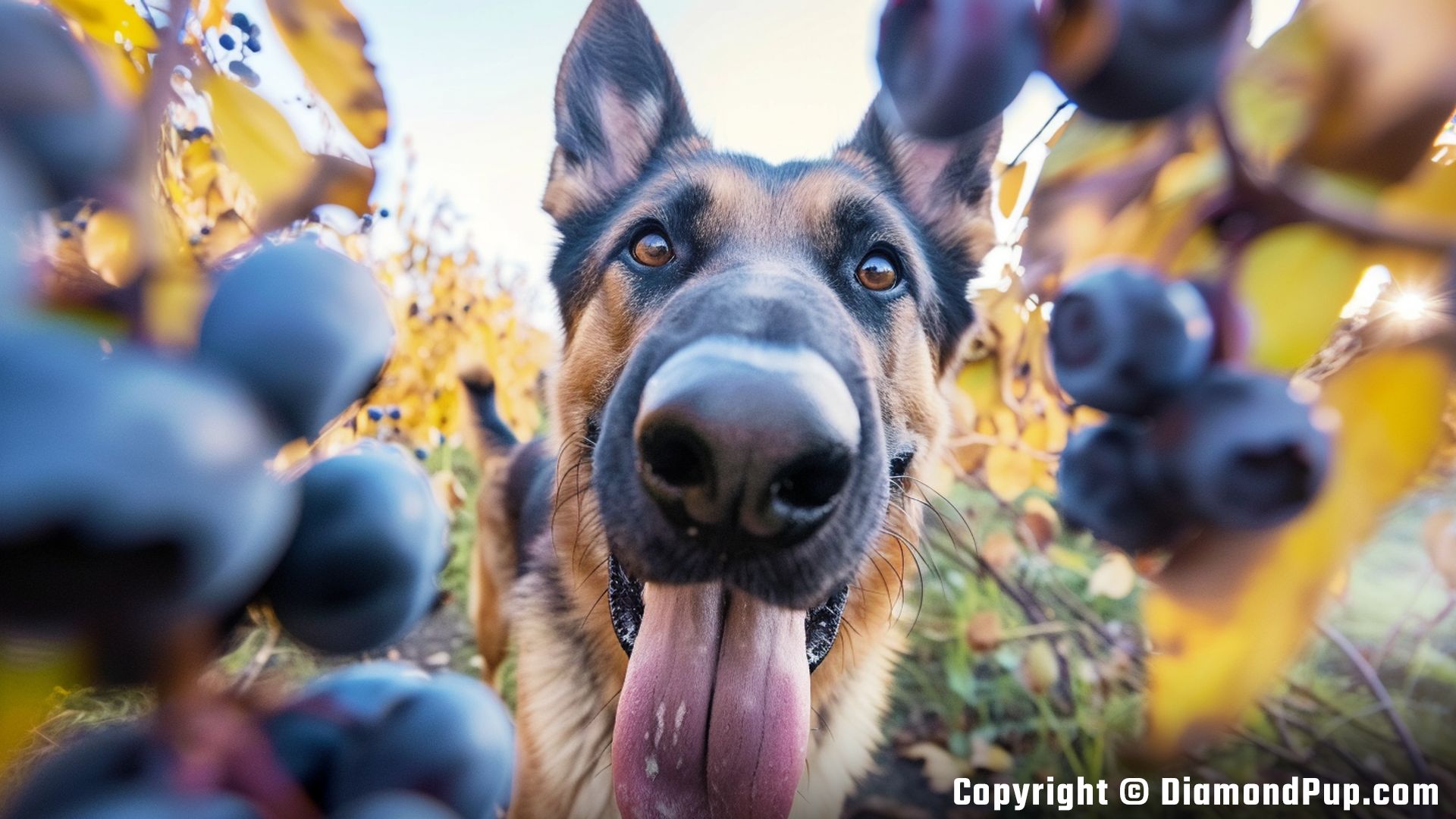
Are there any German Shepherds that shouldn't eat Blueberries?
While most German Shepherds can enjoy the benefits of blueberries as a tasty and nutritious treat, there are a few exceptions to consider. If your German Shepherd has diabetes or is overweight, it's important to monitor their sugar intake, including natural sugars from fruits like blueberries. People also ask about feeding chicken to German Shepherds: yes or no? Since bananas also contain natural sugars, it's essential to limit the amount your dog consumes to prevent any spikes in their blood sugar levels. Additionally, if your German Shepherd has a sensitive stomach or digestive issues, introducing new foods like bananas should be done gradually to monitor their tolerance and prevent any gastrointestinal upset.
Recipes for Feeding Your German Shepherds Blueberries
When it comes to feeding your German Shepherd blueberries, it’s important to remember that moderation is key. These tiny fruits are packed with beneficial antioxidants and vitamins, but they should be considered as a special treat rather than a staple in their diet. One simple and delicious recipe is to mix a few fresh blueberries with your German Shepherd’s regular dry kibble. This adds a sweet and nutritious flavor boost to their meal, making it more enjoyable for them while still keeping their overall diet balanced.
Another creative way to incorporate blueberries into your German Shepherd’s diet is by making homemade frozen blueberry treats. Simply blend fresh blueberries with a bit of water and pour the mixture into ice cube trays. Once frozen, these icy delights can be given to your furry friend as a refreshing snack on hot days. Remember to always consult with your veterinarian before introducing any new foods to your dog’s diet, especially if they have any underlying health conditions.
Alternatives to Blueberries for German Shepherds
If you're looking for an alternative to blueberries for your German Shepherd, look no further than bananas! Bananas are a fantastic fruit that can be a healthy addition to your dog's diet. They are rich in potassium, which is essential for proper muscle function and maintaining a healthy heart. Bananas are also a good source of vitamins C and B6, as well as fiber, which can aid in digestion. Plus, German Shepherds tend to enjoy the sweet taste of bananas, making them a great option for a tasty and nutritious treat.
When feeding your German Shepherd bananas, make sure to offer them in moderation. While bananas are a great snack, they should not make up a large part of your dog's diet. Too much of any food can lead to digestive upset or an imbalance in their nutrition. So, remember to incorporate bananas as an occasional treat alongside your dog's regular balanced diet for a happy and healthy pup!
Common Questions About German Shepherds and Blueberries
One common question that arises when considering feeding your German Shepherd blueberries is whether they can also enjoy other fruits, such as bananas. The good news is that bananas can also be a healthy treat for your furry friend! Bananas are low in sodium and cholesterol, making them a heart-healthy option for your German Shepherd. Additionally, bananas are a great source of essential vitamins and minerals, such as potassium, vitamin C, and vitamin B6, which can help support your dog's overall health and well-being.
However, it's important to remember that bananas should only be given to your German Shepherd in moderation as a treat, rather than as a staple food in their diet. Too much fruit consumption can lead to an upset stomach or diarrhea in some dogs, so it's best to offer bananas as an occasional snack rather than a daily indulgence. Always remember to consult with your veterinarian before making any significant changes to your dog's diet.
Subscribe Now
Stay updated with the latest news and articles! We'll keep you updated on the latest tips for your pet German Shepherd
